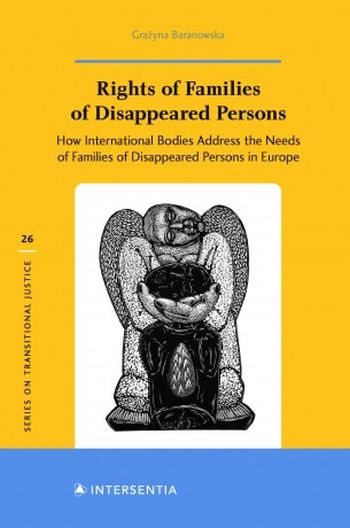
This book examines how international judicial and non-judicial bodies in Europe address the needs of the families of forcibly disappeared persons. The needs in question are returning the remains of disappeared persons; the right to truth; the acceptance of responsibility by states; and the right to compensation. These have been identified as the four most commonly shared basic and fundamental needs of families in which an adult was disappeared many years previously and is now assumed to be dead, which is representative of the situation of the vast majority of families of disappeared persons in Europe.
The families of disappeared persons have an increasing number of international mechanisms through which they can attempt to address their needs. The proliferation of such mechanisms gives victims of enforced disappearance in Europe access to many different international procedures. At the same time, however, a functional analysis of the specific organs involved has shown that they respond to the needs of families to varying degrees. This results from the differences in their competences as well as those in their jurisprudence.
There is no international instrument or mechanism capable of fully satisfying the four basic needs of the families of disappeared persons. However, in Europe, these families do have the possibility to make use of various judicial and quasi-judicial means and mechanisms which – if the states involved would properly execute the judgments or cooperate with the proper bodies – could lead to the return of the remains of disappeared persons, to obtaining knowledge about their fates, and to receiving financial compensation.
The analysis covers the judgments and decisions of the European Court of Human Rights, the UN Human Rights Committee, the International Criminal Tribunal for the former Yugoslavia, the Human Rights Chamber for Bosnia and Herzegovina, the Human Rights Advisory Panel in Kosovo, as well as the activities of the Committee on Missing Persons in Cyprus, the Special Process on Missing Persons in the Territory of former Yugoslavia, the UN Committee on Enforced Disappearances and the International Commission on Missing Persons. In so doing, the book demonstrates whether, how, and based on what principles these four needs of the families of disappeared persons can constitute a claim based on international human rights law.